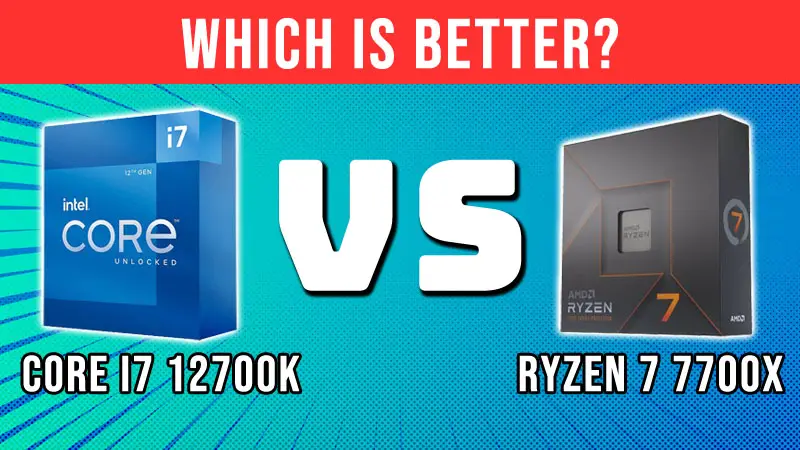With the launch of the Ryzen 7000 series CPUs, the competition between Intel and AMD has grown even more fierce. On one hand, we have the Ryzen 7700X from AMD trying to take the crown in the high-end range, the i7 12700K is trying to maintain its position in the CPU hierarchy.
While both these processors have a lot of differences, comparing them in real-world benchmarks and advantages over each other can clear users’ confusion.
Even though comparing the specs is a good idea, it doesn’t tell the entire story. We have to look at the whole picture if we want to know what will be best for a user and that depends on the requirements, budget, and upgradeability.
In this post, we will discuss what possible advantages or disadvantages you will have by choosing between the two. I will explain each factor in detail to make the comparison as simple as possible and yet detailed enough to touch every possible aspect related to their comparison.
Specifications Difference
SPECS | INTEL CORE i7 12700K | AMD RYZEN 7 7700X |
Code Name | Alder Lake | Raphael |
Lithography | Intel 7(10nm) | 5nm |
Socket | LGA 1700 | AM5 |
Cores/Threads | 12/20 | 8/16 |
Clock Speeds | 2.7-3.8GHz(Efficient) 3.6-4.9GHz(Performance) | 4.5/5.4GHz |
L2/L3 Cache | 12/25MB | 8/32MB |
TDP | 125W-190W | 105W |
Integrated Graphics | Yes | Yes |
The i7 12700K brings a lot more cores and threads compared to the 7700X as you can see from the chart above. Therefore, theoretically, the 12700K should be faster in multi-core operations.
The i7 12700K features a significantly higher TDP compared to previous generations and it is also higher than the 7700K. The TDP difference is roughly 90% if we consider the upper limit of both CPUs but it will vary as the power consumption differs with different loads.
One of the most interesting differences here is the cache memory. AMD always used to have a lot more cache on their Ryzen CPUs compared to Intel but looks like Intel has closed the gap a lot. Now, there is a difference of only 7MB for the L3 cache while the L2 cache is already 4MB higher than the 7700X.
The other factor to consider is the integrated graphics which won’t be a concern for many users as most 12700K or 7700X owners will use a discrete GPU for heavy workloads the iGPUs on both CPUs aren’t powerful enough to run games.
The 7700K comes with the RDNA 2 based 2 core GPU clocked at 2200MHz while the 12700K comes with the UHD Graphics 770. Both of these iGPUs are sufficient for powering up high-resolution displays and can perform basic graphics operations for non-gamers.
- Built for the Next Generation of Gaming. Game and...
- Integrated Intel UHD 770 Graphics
- Compatible with Intel 600 series and 700 series...
- Intel Core i7 3.60 GHz processor offers more cache...
Architectural Difference
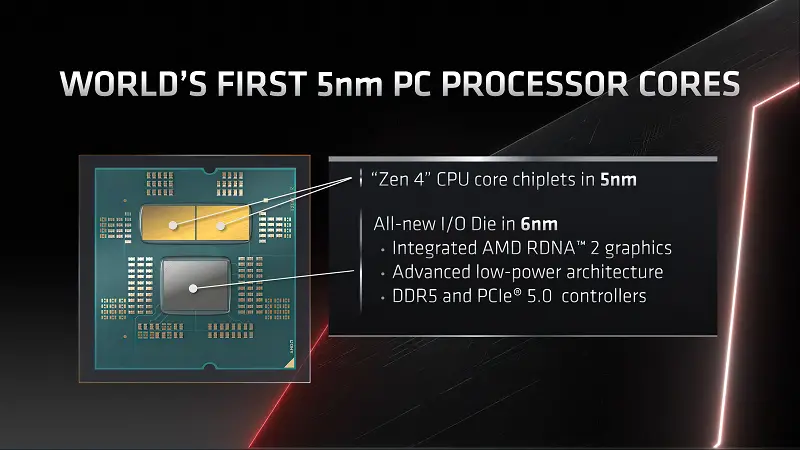
Both the 7700X and 12700K have completely different architecture and there is no simple way of comparing the two and deciding which one is better.
However,r in my opinion the 12700K brings a unique architectural design that was not seen in any of the processors before now, not even in the Ryzen series. Unlike previous Intel Core generations, the i7 12700K brings a hybrid architecture that gives the 12700K two types of cores- Efficient and Performance.
Each has its own benefits and it gives the processor a great boost in multi-thread operations. While in gaming, the benefit of efficient cores is minimal as the i7 12700K already has sufficient performance core count, multi-threaded applications greatly benefit from the efficient cores.
On the other hand, the Ryzen 7700X is also a great chip that features an enhanced Zen 4 architecture that has better IPC than Zen 3 and comes with a block design where each CCD contains 8 cores(4 cores per CCX and two CCX per CCD)and each core can access up to 4MB of L3 cache.
This is a lot similar to the Zen 3 block design but the clock speeds have increased significantly which results in at least 50% of the total performance boost you get over the 5700X. Moreover, the 7700X uses a smaller process node of 5nm from TSMC whereas the i7 12700K uses Intel 7 which is a 10nm process node. This gives the 7700X the advantage of faster computing power and less energy consumption.
However, keep in mind that the 7700X is not exactly as it looks and we will talk about that later under the Thermals section.
Motherboard Compatibility
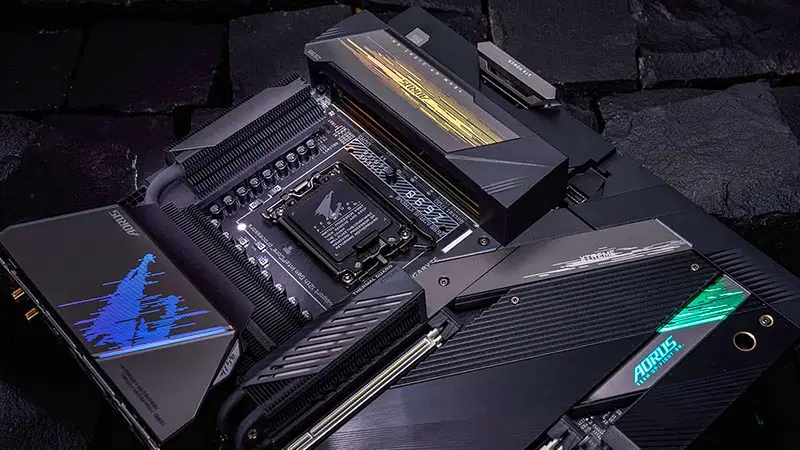
The 7700X is compatible with only the AM5 socket and that is a completely different platform than the LGA 1700 socket where the i7 12700K will go. Both these sockets can be found on motherboards featuring different chipsets.
As 7700X and 12700K are both overclockable, they are best to use with unlocked chipset motherboards. We currently have limited overclocking options for the AM5 and LGA 1700 platforms.
On the AM5, there are two dual chipsets- X670, X670E, B650, and B650E where the “E” stands for Extreme which provides more PCI-E 5.0 lanes. We currently don’t know if AMD has plans to release locked chipsets for the AM5.
The LGA 1700 motherboards are currently divided into two categories. One is for 12th gen processors featuring 600 chipsets and the other is for 13th gen processors featuring 700 chipsets. However, the motherboards and processors are backward compatible and can be used interchangeably.
Only Z690 and Z790 will allow overclocking of the motherboard but the 12700K can be used on any other LGA 1700 motherboard as well.
RAM Compatibility
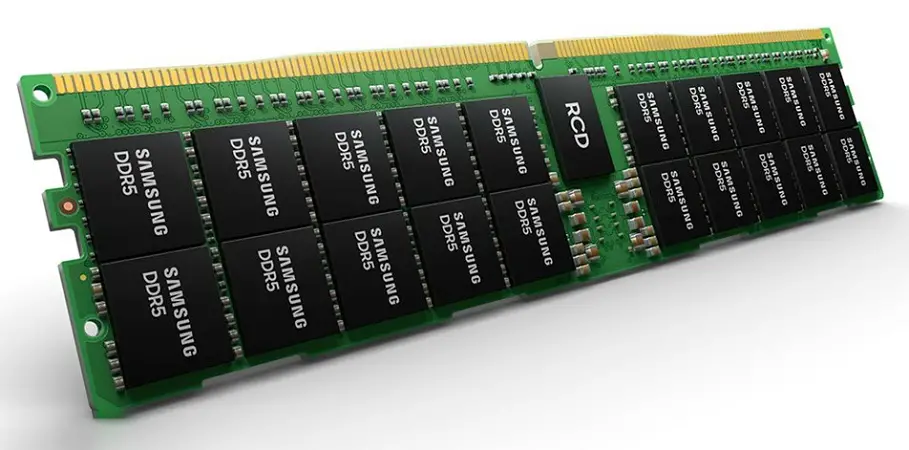
By default, the Ryzen 7700X will only support DDR5 RAM as the AM5 supports only DDR5 memory type. Therefore, we are not going to see any DDR4 versions of AM5 motherboards.
The i7 12700K supports both DDR4 and DDR5 RAM and there are both DDR4 and DDR5 motherboard editions in the 600 motherboard lineup. This gives the i7 12700K a good advantage over the 7700X as the cost of DDR4 RAM is comparatively lower.
The next-gen LGA 1700 motherboards i.e., the 700 chipset motherboards will have very few DDR4 editions as Intel wants DDR5 to be the norm especially when AM5 doesn’t support DDR4 at all. DDR5 RAM is significantly faster than DDR4 RAM but also features higher CL timings.
- This dominant gaming processor can deliver fast...
- 8 Cores and 16 processing threads, based on AMD...
- 5.4 GHz Max Boost, unlocked for overclocking, 80...
- For the state-of-the-art Socket AM5 platform, can...
Gaming And Non-Gaming Performance

Specs and theoretical analysis don’t give accurate numbers and the best way to measure the performance of a CPU is to see how it performs in games and applications.
To compare both the i7 12700K and Ryzen 7700X, we need a couple of benchmarks but I feel it is important to collect as much as data that can allow us to conclude our result.
As some of the users might be looking for a CPU that can do well in games, some use professional apps for various purposes like content creation and need a CPU that is better when it comes to the price-to-performance ratio.
We are looking at a few benchmarks from some of the best third-party sources like Gamers Nexus((https://youtu.be/LJeEd7_Cv90)), Techspot((https://www.techspot.com/review/2537-amd-ryzen-7700x/)), Techpowerup((https://www.techpowerup.com/review/amd-ryzen-7-7700x/)), and PCMag((https://www.pcmag.com/reviews/amd-ryzen-7-7700x)). These sources have enough data on both gaming and non-gaming performance for us to conclude the results.
As each of these sources used different configurations, we can get a more uniform result. Most of these sites use GPUs like RTX 3080 or above. Therefore, they don’t bottleneck the CPU and the CPUs don’t bottleneck the GPU itself.
The gaming benchmarks of these sources have somewhat different results, however, those are still not significantly far from each other. So, it’s good news as the benchmarks do show consistent results.
The Ryzen 7700X shows better gaming performance across several games except for the results by Techpowerup where the 12700K outperforms the 7700X in almost every game with some little margin. In other tests, however, the 7700X is slightly better(1-5%) than the 12700K and ties in some. This shows that there is minimal difference between the two chips when we consider gaming benchmarks .
The story is completely different when it comes to application benchmarking. The results vary here and there are conflicting numbers when we compare the numbers from the sources we have considered here. In some applications like Adobe Photoshop and Adobe Premiere Pro which are very popular amongst content creators, GN got better performance and faster rendering with the 7700X, however, Techspot has the opposite results.
Results of PCMag and Techpowerup favor the 7700X a little bit more than the 12700K. So, the 7700X looks better overall considering the number of benchmarks we have analyzed for applications like Adobe Photoshop and Premiere Pro.
Except for a few apps like these, the 7700X and 12700K look identical in performance but in some cases, the 12700K gives better numbers due to having more cores. Overall, I would give it a tie as the average difference in performance between the two is insignificant.
Value Comparison
As tested in gaming and applications, there is no clear winner of the two . Each has its own benefits and the things that will matter are the user’s choice and needs.
Here we have to consider a few things before deciding which is a better option. These will include pricing, upgradeability, thermals, and of course, the total cost of the PC one has to bear.
The i7 12700K was launched at an MSRP of $409 and has another variant, the i7 12700KF with no iGPU that was launched at $20-$30 less and performs similarly. The Ryzen 7700X was launched at $399 which makes both of them in a really tight competition.
Therefore, each of these CPUs is equivalent to each other in price-to-performance ratio and hence, we have to look at some other factors that may help you decide between the two.
The i7 12700K runs a lot cooler than the 7700X and the latter easily reach 90C and above even with a decent aftermarket CPU cooler. This means that you need a better and more expensive CPU cooler if you want to keep the temps of 7700X below 90C all the time.
The next thing is the cost of the motherboard and RAM. Z690 motherboards and DDR4 RAM cost much lower than an AM5 X670 motherboard and DDR5 RAM. Overall, you are looking at a minimum of $150-$200 price increase if you go with the 7700X right now.
The prices should reduce in the coming months as the AM5 socket becomes more popular and the DDR5 RAM prices drop even further. But currently, bad thermals and higher cost make the i7 12700K a more reasonable choice than the 7700X. However, the Highlighted text .
Otherwise, if you go by the performance and pricing of these processors alone, it is really difficult to pick a winner.
Conclusion And Final Words
The performance of the 12700K and 7700K look equivalent but the upgradeability with the Ryzen 7700X looks more promising than the 12700K. On the other hand, the 12700K saves a good amount of cash due to a cheaper motherboard and RAM.
Rest is up to your needs and preference. Let me know which processor you think is worth buying in the comments below.
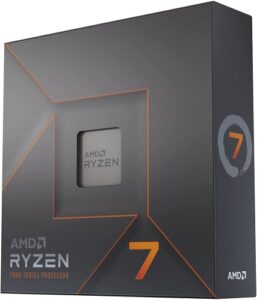
Reasons To Buy Ryzen 7 7700X
[wp-svg-icons icon=”thumbs-up” wrap=”i” color=green] AM5 will last longer
[wp-svg-icons icon=”thumbs-up” wrap=”i” color=green] RDNA 2 based iGPU
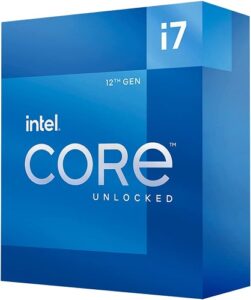
Reasons To Buy Core i7 12700K
[wp-svg-icons icon=”thumbs-up” wrap=”i” color=green] Lower PC cost overall
[wp-svg-icons icon=”thumbs-up” wrap=”i” color=green] Supports both DDR4 and DDR5
Related:
- AMD Ryzen 5 7600X vs Ryzen 7 5800X3D
- AMD Ryzen 5 7600X vs Ryzen 5 5600X
- AMD Ryzen 5 7600X vs Ryzen 7 7700X
- AMD Ryzen 7 7700X vs Ryzen 7 5700X
- AMD Ryzen 7 7700X vs Ryzen 7 5800X3D
- AMD Ryzen 5 7600X vs Intel Core i5 12600K
- AMD Ryzen 7 7700X vs Ryzen 9 7900X
- AMD Ryzen 9 7900X vs Ryzen 9 7950X
- AMD Ryzen 9 7900X vs Intel Core i9 12900K
- AMD Ryzen 5 7600X vs Intel Core i9 12900K
- AMD Ryzen 9 7900X vs Ryzen 9 5900X
- AMD Ryzen 9 7950X vs Ryzen 9 5950X
- Intel Core i5 13600K vs Ryzen 7 7700X
- Intel Core i7 12700K vs Intel Core i7 13700K
- Intel Core i7 13700K vs Ryzen 7 7700X


